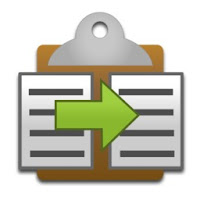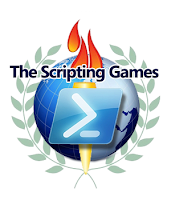Updated (2013/06/03): I added some error handeling/verbose/testing. You are now able to pass multiple computers to the ComputerName parameter.
Intro
Recently I had to do an Audit at my work to find who was Local Administrators on a bunch of Servers.
That might sounds easy when you just have to check 2 or 3 servers... but what if you have to get the information for hundreds! Plus ... I know the Auditor would ask me this same question every few months to prove that the list did not change...Arghhh!
Once again PowerShell saved me so much time on that one!!
Get-LocalGroupMembership
Get the specified local group membership on a local or remote computer.
By default, if you don't specify any parameter, It will query the local group "Administrators" on the localhost.
For some reason WMI bug with some of my Windows Server 2003 and does not return some Domain Groups where Windows Server 2008/2012 work just fine.
Here is my ADSI/WinNT version, It fixed my problem.
In the next post I will go a bit further and get the membership from the domain groups ;-)
Running the Function
The Code
Function Get-LocalGroupMembership {
<#
.Synopsis
Get the local group membership.
.Description
Get the local group membership.
.Parameter ComputerName
Name of the Computer to get group members. Default is "localhost".
.Parameter GroupName
Name of the GroupName to get members from. Default is "Administrators".
.Example
Get-LocalGroupMembership
Description
-----------
Get the Administrators group membership for the localhost
.Example
Get-LocalGroupMembership -ComputerName SERVER01 -GroupName "Remote Desktop Users"
Description
-----------
Get the membership for the the group "Remote Desktop Users" on the computer SERVER01
.Example
Get-LocalGroupMembership -ComputerName SERVER01,SERVER02 -GroupName "Administrators"
Description
-----------
Get the membership for the the group "Administrators" on the computers SERVER01 and SERVER02
.OUTPUTS
PSCustomObject
.INPUTS
Array
.Link
N/A
.Notes
NAME: Get-LocalGroupMembership
AUTHOR: Francois-Xavier Cat
WEBSITE: www.LazyWinAdmin.com
#>
[Cmdletbinding()]
PARAM (
[alias('DnsHostName','__SERVER','Computer','IPAddress')]
[Parameter(ValueFromPipelineByPropertyName=$true,ValueFromPipeline=$true)]
[string[]]$ComputerName = $env:COMPUTERNAME,
[string]$GroupName = "Administrators"
)
BEGIN{
}#BEGIN BLOCK
PROCESS{
foreach ($Computer in $ComputerName){
TRY{
$Everything_is_OK = $true
# Testing the connection
Write-Verbose -Message "$Computer - Testing connection..."
Test-Connection -ComputerName $Computer -Count 1 -ErrorAction Stop |Out-Null
# Get the members for the group and computer specified
Write-Verbose -Message "$Computer - Querying..."
$Group = [ADSI]"WinNT://$Computer/$GroupName,group"
$Members = @($group.psbase.Invoke("Members"))
}#TRY
CATCH{
$Everything_is_OK = $false
Write-Warning -Message "Something went wrong on $Computer"
Write-Verbose -Message "Error on $Computer"
}#Catch
IF($Everything_is_OK){
# Format the Output
Write-Verbose -Message "$Computer - Formatting Data"
$members | ForEach-Object {
$name = $_.GetType().InvokeMember("Name", 'GetProperty', $null, $_, $null)
$class = $_.GetType().InvokeMember("Class", 'GetProperty', $null, $_, $null)
$path = $_.GetType().InvokeMember("ADsPath", 'GetProperty', $null, $_, $null)
# Find out if this is a local or domain object
if ($path -like "*/$Computer/*"){
$Type = "Local"
}
else {$Type = "Domain"
}
$Details = "" | Select-Object ComputerName,Account,Class,Group,Path,Type
$Details.ComputerName = $Computer
$Details.Account = $name
$Details.Class = $class
$Details.Group = $GroupName
$details.Path = $path
$details.Type = $type
# Show the Output
$Details
}
}#IF(Everything_is_OK)
}#Foreach
}#PROCESS BLOCK
END{Write-Verbose -Message "Script Done"}#END BLOCK
}#Function Get-LocalGroupMembership
Thanks for Reading! If you have any questions, leave a comment or send me an email at fxcat@lazywinadmin.com.
I invite you to follow me on Twitter:
@lazywinadm
 I've been working in the video games industry for a bit more than 3 months now. A lot is going on, and the pace seems faster than regular corporation environment. I also notice a lot of employees movements between teams and projects.
I've been working in the video games industry for a bit more than 3 months now. A lot is going on, and the pace seems faster than regular corporation environment. I also notice a lot of employees movements between teams and projects.







.png)
.png)
